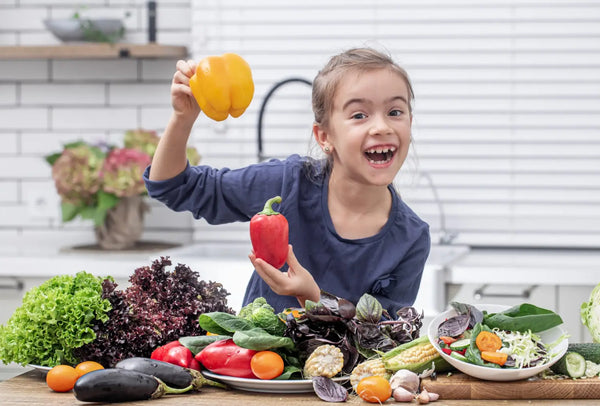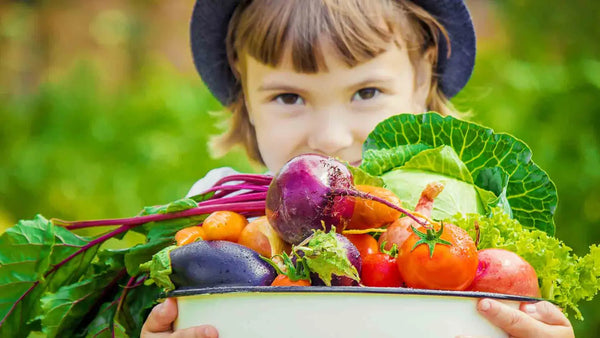How to get children to eat vegetables
Some children are true culinary explorers, ready to try anything. However, sometimes a sudden change occurs, and your child suddenly seems to shun their favorite vegetables. How can you overcome this delicate challenge and get children to love vegetables? Discover our tips for getting back into a healthy, balanced diet.
1. Hidden Vegetables
When vegetables are served separately, children can sometimes see them as a problem. One effective trick is to subtly incorporate vegetables into mixes or soups. By reducing their size, your children will focus more on the flavors they enjoy. For example, try adding cauliflower to macaroni and cheese or cutting vegetables into thin slices to incorporate them into a rice mixture.
2. Puree
Mashed vegetables can be a valuable ally when it comes to hiding them. Puree them to add them as a side dish or in smoothies. Bananas or citrus fruits can mask the flavors, transforming a serving of vegetables into a delicious treat. Whether or not you share this trick with your children is up to you, depending on their reaction.

3. Vegetables First
Encourage vegetable consumption by making them a top priority. A vegetable platter after school or at the beginning of a meal can stimulate your children's appetite. Be careful not to present vegetables as a barrier, to prevent some children from perceiving them negatively. Use positive language and avoid constraints.
4. Children Choose
Involve your children in choosing vegetables. Whether it's while grocery shopping, at the market, or virtually, get them involved. Encourage them to explore new vegetables each week, even if they don't like all of them. The goal is to make the experience enjoyable and fun.

5. The Green Thumb
A garden can be a source of inspiration for your children. Test their gardening skills with an outdoor space or a potted plant. Let them be as involved in the process as possible. Choose attractive vegetables like potted peppers to make the experience even more enjoyable.
6. Vegetable Dip
Make eating vegetables a fun experience by adding dips. Studies show that kids are more likely to try vegetables when they come with a dip. Explore healthy and delicious recipes, avoiding high-calorie options.

7. Peer Pressure
Use peer pressure positively by encouraging your children to adopt healthy eating habits by observing their peers. If other children around them eat vegetables without any problem, it may encourage them to do the same.
8. The Child Chefs
Involve your children in meal preparation. Let them participate as much as possible, whether by preparing vegetables or choosing spices to accompany them. Being involved in the preparation often increases their appetite for eating.

9. Model Behavior
Lead by example by adopting healthy habits. Share your favorite vegetables enthusiastically and explain why you enjoy them.Imitation is a powerful method, and your children will be more likely to follow your example.
10. Make it an Event
If vegetable-based meals sometimes seem overwhelming for your kids, add a touch of fun. Host themed dinners where vegetables take center stage. Whether it's with festive decorations or live music, make the eating experience fun and engaging.
In conclusion, try different approaches and be patient. Children's tastes evolve, and with creativity and persistence, you can encourage a healthy and varied diet. If you need tips on how to stay energetic while preparing nutritious meals, check out this article.


0 comments